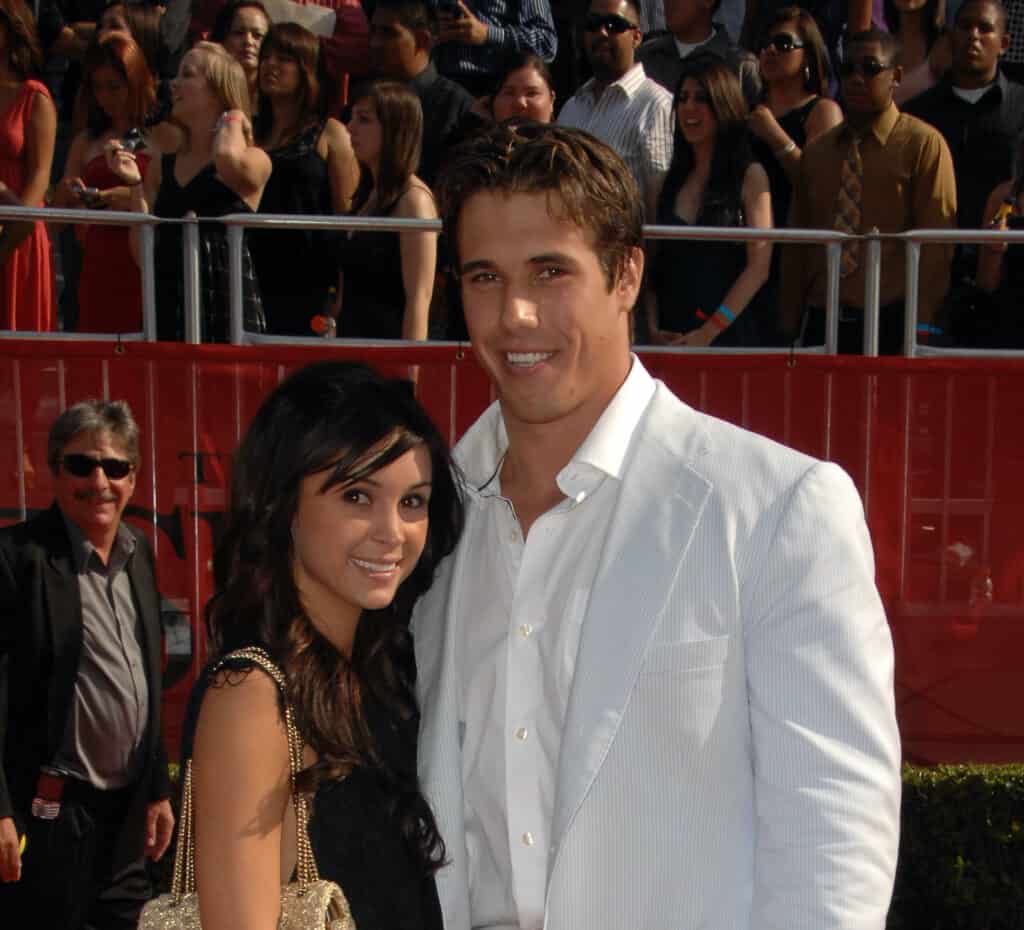After being drafted in the first round of the NFL Draft, Brady Quinn played less than two full seasons as a starting quarterback. Why and when did Quinn retire?
Brady Quinn played his final NFL game in 2012 with the Kansas City Chiefs. He was signed by multiple franchises in the following years but failed to play a game. His career ended when he went unsigned after the 2015 NFL Veteran Combine.

For more on Brady Quinn’s football career and how it ended, read on.
Amateur Career
Brayden Tyler Quinn, better known as Brady Quinn, was born in Columbus, Ohio on October 27, 1984. Quinn played football at the Dublin Coffman High School, where he was considered one of the best players in the Midwest and one of the top prospects in the country as a whole.
He had winning records in each of his seasons as a high school starter and played at the U. S. Army All-American Bowl. He was named Ohio’s Offensive Player of the Year and drew attention from college recruiters.
Notre Dame offered Quinn a football scholarship, which he accepted, playing four seasons with the Fighting Irish. He set numerous college records while with the team, winning 29 games as the team’s starting quarterback.
Quinn graduated in 2006 with dual degrees in political science and finance.
His exemplary college performances saw him regarded as one of the NFL Draft’s most promising quarterbacks, with the potential to become a franchise quarterback for years to come. Projections placed him in the top ten, with some saying he might even be selected as the first pick.
Professional Career
The Cleveland Browns, who were considered one of the likeliest franchises to select Quinn with the third pick of the Draft, instead chose offensive tackle, Joe Thomas. Quinn was still available when the Browns had their second pick, drafting him with the 22nd pick of the first round.
Quinn was signed to a five-year deal with $7.75 million guaranteed and as much as $30 million in performance incentives.
Quinn began his NFL career as the Browns’ third-choice quarterback behind Derek Anderson and starter Charlie Frye. Frye’s first game of the season went poorly, suffering a 34-7 blowout at the hands of the Pittsburgh Steelers.
Frye was traded to the Seattle Seahawks, leaving Quinn as the second choice quarterback. Anderson then injured his hand and wrist in December, with Quinn taking on quarterback duties for the final game of the 2007 season.
Quinn led the Browns to a field goal and there was speculation that Anderson would be traded to get another first round pick in the following Draft. Both quarterbacks stayed with the franchise and Quinn again fell into the role of backup.
Anderson started the season with a 3-5 record and Quinn was promoted to starter, losing his first start game to the Denver Broncos. He won the following game, defeating the Buffalo Bills, but broke his index finger, leading to a season ending surgery.
Quinn started the 2009 season as starter but was benched at halftime in Game 3 after poor performances. He was brought back in for the latter half of the season but injured his foot and missed the final two games.
Decline
He was traded to the Denver Broncos for the 2010 season, positioned behind Kyle Orton in the depth chart. However, in 2011, Orton was benched in Week 5 for Tim Tebow, who became the starting quarterback for the rest of the season.
Orton did not play a minute of competitive football for the Broncos and was traded to the Kansas City Chiefs in 2012. He played ten games as the Chiefs’ starting quarterback with a disappointing ratio of 2 touchdowns to 8 interceptions.
After a season with the Chiefs, Quinn did not play in another NFL game. He was signed by the Seahawks, Jets and Rams but did not play.
Quinn had signed with the Rams as a backup but herniated two discs in his back during training, getting surgery. Considering his options, he signed to be a color commentator with Fox but signed with the Miami Dolphins.
The Dolphins released Quinn less than a fortnight later. He participated in the NFL Veteran Combine in 2015 in an attempt to find a new team but was not signed, effectively ending his NFL career.
He continued working for Fox as a college football analyst, a fitting role for such an exceptional college quarterback.